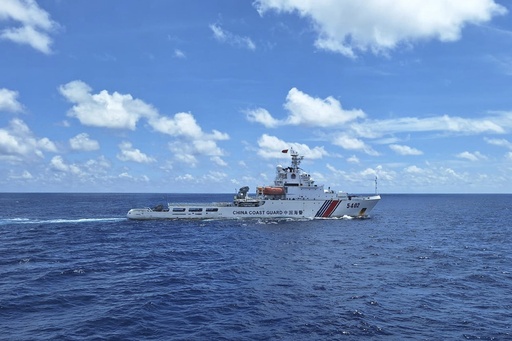
MANILA, Philippines — The Philippine military initiated a series of combat exercises on Monday that will run for two weeks, focusing on the simulation of capturing an island in the contentious South China Sea, an act likely to be met with disapproval from China.
Over 3,000 members from the Philippine Army, Navy, and Air Force are set to participate in these drills. Military officials have emphasized that the exercises are not intended to target any specific nation.
China has significantly increased its military presence and has been assertive in claiming vast regions of the South China Sea, which it asserts ownership over almost entirely. This assertiveness has resulted in more frequent confrontations primarily with the Philippines and Vietnam, although other nations including Malaysia, Indonesia, Brunei, and Taiwan are also involved in these ongoing territorial disputes.
A recent instance occurred last month when Indonesia reported that its ships forced a Chinese coast guard vessel to leave an area where a state-owned energy company was conducting a survey, highlighting the tensions in the region.
“The objective of our exercises is very clear: to ensure we are thoroughly prepared to address any external threats that could impact our sovereignty,” stated Gen. Romeo Brawner Jr., chief of the Armed Forces of the Philippines, during the exercises’ opening ceremony.
The planned operations will incorporate live-fire exercises utilizing artillery and rifles, along with beach landing drills. According to Philippine Army Colonel Michael Logico, troops will simulate the seizing of an island in the South China Sea, although further details were not disclosed.
When queried about potential reactions from China, Logico anticipated that Chinese forces would likely observe the exercises from a distance, although he did not expect any aggressive actions from them.
“They will have a front-row seat to our exercise. Their observation doesn’t concern us,” Logico remarked.
China has historically expressed opposition to military drills in the South China Sea, especially those involving American forces and their allies.
The Biden administration has sought to fortify military alliances across the Indo-Pacific region to counter China’s influence more effectively, especially in light of potential future tensions involving Taiwan. These efforts align with the initiatives of the Philippines to enhance its own territorial defense amid ongoing disputes with China over areas in the South China Sea.
Looking ahead, U.S. and Philippine forces are set to conduct their largest annual military exercises called Balikatan, which means “shoulder-to-shoulder” in Tagalog, next year. These drills are also anticipated to include operations in contested areas of the South China Sea.
